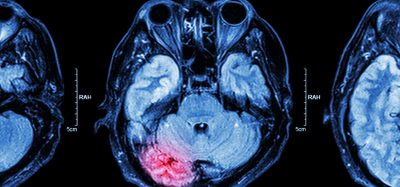Anticancer activity delivered by targeting mitochondrial cell regulator
Posted: 4 October 2019 | Rachael Harper (Drug Target Review) | No comments yet
Disruption of the MFF-VDAC1 complex could lead to a potential therapeutic target for cancer.


A novel anticancer molecule has been created which showed therapeutic activity in pre-clinical models of various cancer types. This cell-permeable peptidomimetic was designed to disrupt a newly identified protein complex involving mitochondrial fission factor (MFF) and the voltage-dependent anion channel-1 (VDAC1), which regulates mitochondrial cell death.
The study by researchers at The Wistar Institute showed that MFF is highly expressed in cancer and interacts with VDAC1, a key regulator of mitochondrial cell death, to keep tumour cells alive.
“Disruption of the MFF-VDAC1 complex in vitro resulted in killing of cancer cells, pointing us in the direction of a potential therapeutic target,” said Dario C Altieri, MD, who is the senior author on the study. “The next step was to create a molecule that could disrupt the protein-protein interaction between MFF and VDAC1 and deliver pre-clinical anticancer activity without harming normal cells.”
Biomarkers aren’t just supporting drug discovery – they’re driving it
FREE market report
From smarter trials to faster insights, this report unpacks the science, strategy and real-world impact behind the next generation of precision therapies.
What you’ll unlock:
- How biomarkers are guiding dose selection and early efficacy decisions in complex trials
- Why multi-omics, liquid biopsy and digital tools are redefining the discovery process
- What makes lab data regulatory-ready and why alignment matters from day one
Explore how biomarkers are shaping early drug development
Access the full report – it’s free!
The researchers analysed the structure of the MFF-VDAC1 interface to determine what portions of the MFF protein are required for its interaction with VDAC1. A synthetic peptide designed to contain these MFF regions was able to compete with MFF for binding to VDAC1, disrupting the interaction. As a result, this induced acute mitochondrial dysfunction and cell death.
This cell-permeable peptidomimetic was designed to disrupt a newly identified protein complex”
Treatment with the MFF peptide killed prostate cancer and melanoma cells, including drug-resistant cells. It did not affect the survival of normal prostate cells and fibroblasts, suggesting that transformed cells are more dependent on the integrity of the MFF-VDAC1 complex than normal cells.
Based on these studies, researchers then generated a cell-permeable peptidomimetic molecule, or a compound that mimics the inhibitory peptide, to target the complex in vivo for targeted cancer therapy.
This compound was tested in different pre-clinical settings. In all conditions, the peptidomimetic molecule effectively delivered potent anticancer activity.
“We are hopeful that this compound will be translated into a novel anticancer therapy with potential to be effective in multiple cancer types and less prone to drug resistance,” Altieri continued.
The study was published in Cancer Research.
Related topics
Cell Cultures, In Vitro, Research & Development, Targets, Therapeutics
Related conditions
Cancer
Related organisations
The Wistar Institute
Related people
Dario C Altieri MD








